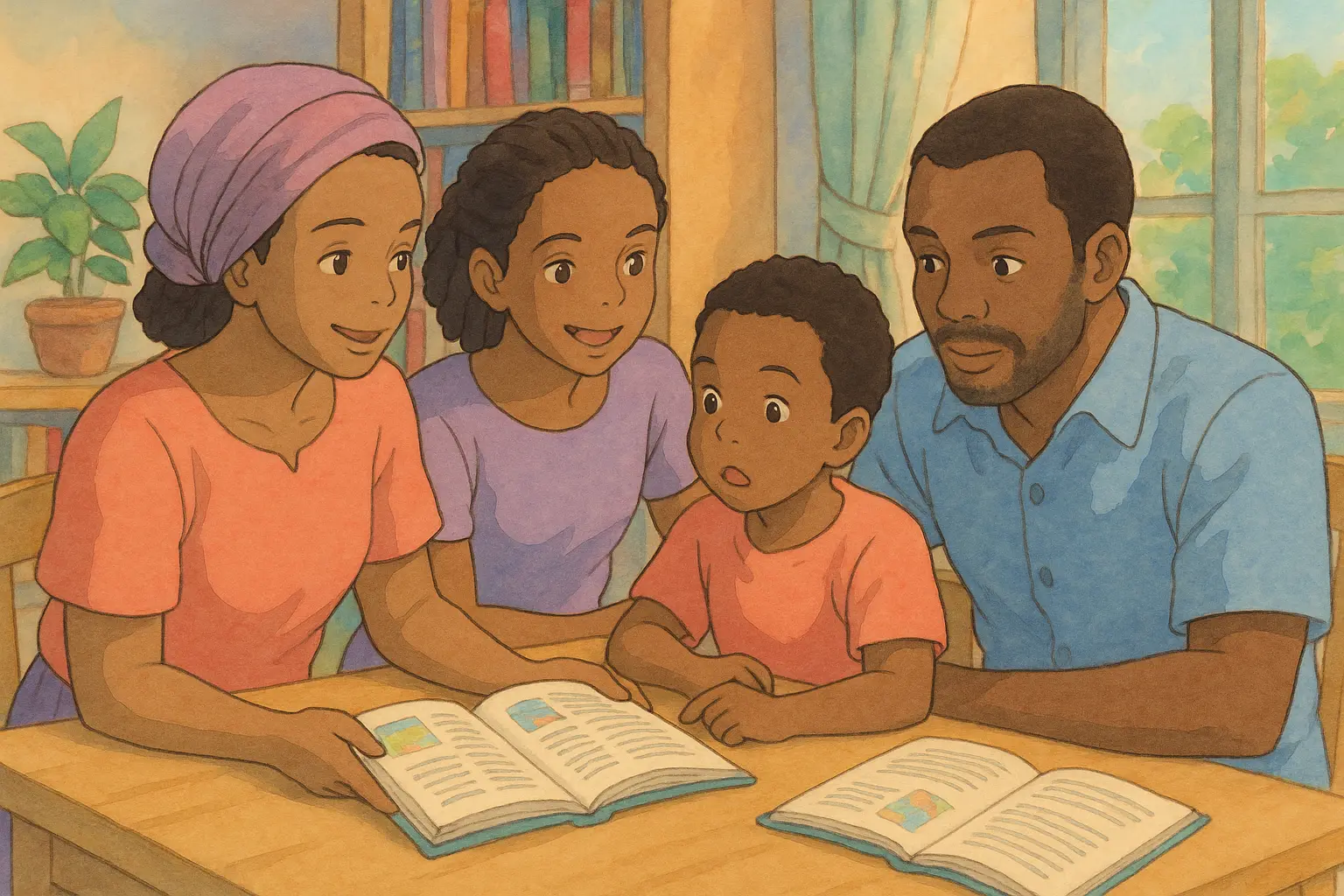Think about this: Your child confidently speaking your African language, sharing jokes with grandparents back home, and feeling proud of their heritage. Sounds amazing, right? But maybe you're wondering if homeschooling is the way to get there. Let's talk about it - no fancy words, just real talk from one parent to another.
Why Consider Homeschooling for Language Learning?
The Beautiful Benefits for Your Child
When your kids learn your language at home, they get so much more than just words. Here's what research and real parents have seen:
-
Stronger Family Bonds
- Kids can talk with grandparents and relatives back home
- They understand family jokes and stories better
- They feel more connected to their heritage
-
Better Brain Power
- Speaking two languages helps kids think more creatively
- They often do better in school subjects like math and reading
- They're better at solving problems and switching between tasks
-
Cultural Pride
- Children develop a strong sense of who they are
- They feel proud of their African heritage
- They can share their culture confidently with friends
Why Home Learning Can Work Better
Learning at home has some real advantages over regular language classes:
-
Learn at Your Own Pace
- No pressure to keep up with other students
- More time to practice difficult sounds
- Freedom to focus on what interests your child
-
Real-Life Learning
- Use your language during everyday activities like cooking
- Watch movies and listen to music in your language
- Practice during video calls with family back home
-
Cultural Connection
- Share stories from your childhood
- Cook traditional meals together while speaking your language
- Celebrate cultural festivals and explain their meaning
Getting Started: Simple Steps for Success
First Things First: What You Need
Don't worry - you don't need fancy equipment or expensive books to start. Here's what really matters:
-
Basic Resources
- A few children's books in your language
- Access to YouTube for songs and stories
- A notebook for new words and phrases
-
Daily Schedule
- Pick specific times for language learning
- Start with 30 minutes a day
- Include both structured lessons and fun activities
-
Support System
- Connect with other African families
- Join online language groups
- Keep in touch with relatives who speak your language
Easy Ways to Teach Every Day
Here are simple activities that work:
-
Morning Routine
- Greet each other in your language
- Name items during breakfast
- Count steps while walking
-
Playtime
- Play traditional games
- Sing songs in your language
- Act out stories together
-
Evening Wind-Down
- Read bedtime stories
- Talk about the day in your language
- Say prayers or blessings together
Handling Common Challenges
When Things Get Tough
Let's be honest - teaching your language at home isn't always easy. Here's how to handle common problems:
-
"My Child Doesn't Want to Learn"
- Make it fun, not forced
- Use their interests (sports, music, games)
- Celebrate small wins
-
"I Can't Find Learning Materials"
- Create your own simple books
- Record family members telling stories
- Use pictures and labels around the house
-
"We're Too Busy"
- Start with just 15 minutes
- Use car rides for practice
- Make weekend activities more language-focused
Finding Help and Resources
You're not alone in this journey. Here's where to find support:
-
Online Communities
- Facebook groups for African language learning
- WhatsApp groups with other parents
- YouTube channels in your language
-
Local Resources
- African cultural centers
- Community events
- Other families teaching their languages
-
Digital Tools
- Language learning apps
- Online stories and songs
- Video chat with relatives
Making It Work Long-Term
Keeping the Momentum Going
Success comes from staying consistent. Here's how:
-
Set Realistic Goals
- Start small and build up
- Track progress with simple charts
- Celebrate achievements together
-
Stay Flexible
- Adjust your schedule when needed
- Try new activities if old ones get boring
- Listen to what works for your child
-
Keep It Positive
- Focus on progress, not perfection
- Make learning fun and natural
- Share success stories with family
Planning for the Future
Think about how language learning fits into your bigger family goals:
-
Short-Term Plans
- Weekly language goals
- Monthly cultural activities
- Regular video calls with family
-
Long-Term Vision
- Visits to your home country
- Participating in cultural events
- Building lasting family connections
Your Next Steps
Ready to start? Here's what to do this week:
-
Today
- Choose one mealtime for language practice
- Label five items in your house
- Call a relative to tell them your plan
-
This Week
- Set up a simple daily schedule
- Find three YouTube videos in your language
- Join an online parent group
-
This Month
- Create a basic word list
- Plan four cultural activities
- Connect with another family
Remember, you're not just teaching a language - you're passing down your heritage and giving your children a precious gift. Start small, stay consistent, and watch your family grow stronger through language learning.
Need more help? Join our community of parents teaching African languages at home. We're here to support you every step of the way.
